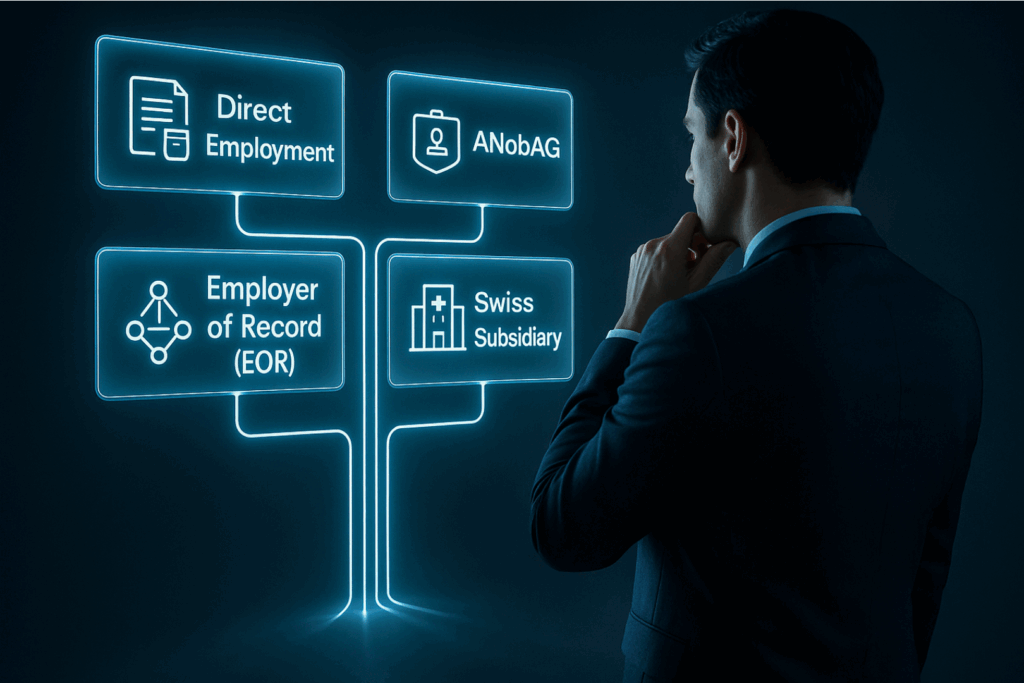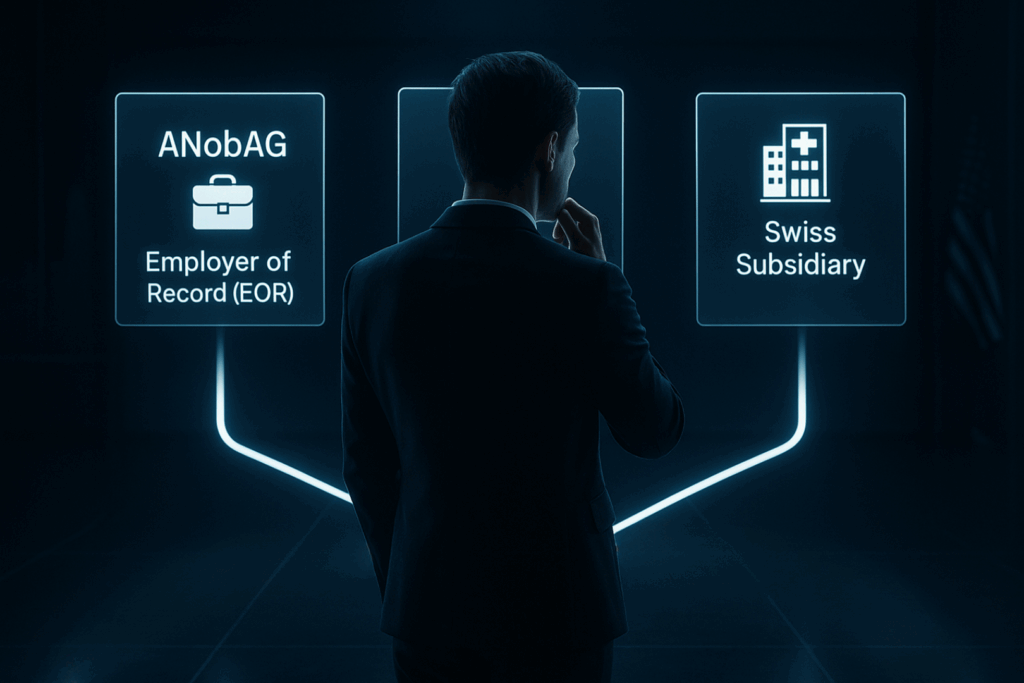Expat Tax Benefits

Employees who are sent to Switzerland by a company abroad (e.g. to a subsidiary or branch) are treated separately for tax purposes in Switzerland. Expats (so-called and short for expatriates) enjoy some tax benefits in this country. In this article, we explain what the special “expat” status is all about, how an expat differs from other employees in Switzerland, and what benefits you can derive from it if you also belong to this group.
Who Is Considered an Expat Under Swiss Law?
Expats are foreign employees who are sent to Switzerland by their company abroad. Expats are usually executives or specialists with special professional qualifications who work for a subsidiary or branch of their home employer in Switzerland for a limited period of time. During the period of the assignment, the employment relationship with the foreign employer continues, even if the expatriate continues to work for the company in Switzerland. According to Swiss law, the duration of the posting may not exceed 5 years and must be proven to the authorities.
Work Permits Necessary
A posting to Switzerland is associated with hurdles for the employer. The expatriat must contact the cantonal migration authority and apply for a work permit for his employee who is to be posted. Depending on the duration of the posting, there are various permits that grant the expat the right to stay in Switzerland for a limited period of time.
Staying Socially Insured in the Home Country?
The employer must also clarify whether his employee can remain insured in his home country during the assignment or whether registration in the Swiss social security system is necessary. Switzerland has a social security agreement with some countries that regulates how to proceed in such a case.
« Persons who are resident in Switzerland for tax purposes have unlimited tax liability. An expat who does not regularly return to his home country during the period of his assignment is considered a resident for tax purposes. This means that the expat has an unlimited tax liability as well, and consequently his worldwide income and wealth are subject to taxation in Switzerland. »
What Applies Regarding Taxes for Expats?
Since the secondment involves a move to Switzerland, this constellation gives rise to some special tax law features. In most cases, expats are neither Swiss citizens nor do they have a permanent residence permit (C permit). This results in a withholding tax liability for the expat. The employer deducts the withholding tax from the expatriate’s salary and pays it directly to the Swiss tax authorities.
Limited or Unlimited Tax Liability?
Persons who are resident in Switzerland for tax purposes have unlimited tax liability. An expat who does not regularly return to his home country during the period of his assignment is considered a resident for tax purposes. This means that the expat has an unlimited tax liability as well, and consequently his worldwide income and wealth are subject to taxation in Switzerland. If the expat returns home on a regular basis he or she might have a limited tax liability. In that case only days worked in Switzerland would be subject to taxation
Does an Expat Have to File a Tax Return?
If the expat is subject to unlimited tax liability in Switzerland and pays withholding tax, he or she is not required to file a tax return at the end of the tax year.
Exception: The expat earns more than CHF 120,000 gross per year. From this amount on, it is necessary to file a tax return. Depending on the canton, assets and income not taxed at source may also result in a tax return having to be filed.
What Tax Breaks Do Expats Have?
Expats in Switzerland benefit from numerous tax breaks resulting from deductible professional expenses. The regulations regarding which expenses are deductible and to what extent vary from canton to canton. Generally, expenses that arise directly from temporary employment in Switzerland and simultaneous relationship with the foreign home country (e.g. second home) are deductible.
Expats who move to Switzerland and transfer their tax residence there can deduct the following costs from their taxes, unless they are covered by their employer:
- Necessary moving expenses for the move to Switzerland (and back again at the end of the assignment)
- Necessary outward and return travel expenses of the expatriate and, if applicable, his/her family at the beginning and end of the assignment
- Reasonable housing costs in Switzerland when keeping the apartment abroad for own use (must be proven to the authority, e.g. by rental contract)
- Costs for tuition of minor foreign-language children at foreign-language private schools, if tuition is not offered in the native language at the public schools in the place of residence
It is also important for expats to know which expenses they cannot deduct from their taxes:
- Operating costs for the apartment or house abroad
- Costs for home furnishings and ancillary housing costs in Switzerland
- Additional costs due to a possible higher price level or higher tax burden in Switzerland
- Costs for legal and tax advice
If such allowances or compensation are paid by the employer, they must be added to the gross salary as benefits in kind.
Differentiation of the Expatriate From Other Foreign Employees
Expats in the legal sense are posted employees who are sent to Switzerland by their employer abroad for a limited period of time. They must not be confused with other foreign employees, whom we still list here for the purpose of differentiation.
Resident
Foreign nationals who reside permanently and without interruption in Switzerland are referred to as “residence holders”. Whether gainful employment is present is irrelevant in this case. As soon as someone stays in Switzerland for more than 90 days per year, and does not regularly return to a secondary residence abroad, he or she is considered a resident. In this case, the person requires a residence permit (B permit). Residents are subject to unlimited tax liability in Switzerland, as they have their tax domicile here.
International Weekly Residents
An “international weekly resident” is an employee who pursues gainful employment in Switzerland on a permanent or temporary basis, but whose place of residence is abroad, to which he or she returns regularly (e.g. at weekends to visit family). In Switzerland, he or she is then only subject to limited tax liability, since his tax domicile is abroad. The international weekly resident is therefore subject to withholding tax in Switzerland.
Cross-Border Commuters
“Cross-border commuters” are employees who are gainfully employed in Switzerland but who return each day to their place of residence in the neighboring country (border areas in Germany, France, Italy or Austria). Their tax residence is abroad, therefore they have limited tax liability in Switzerland and pay withholding tax here.
Tax Return Cost Calculator
If you have problems filling out your tax return or do not know which expenses you can claim for tax purposes in your individual case, don’t hesitate to contact us. We are familiar with the relevant cantonal tax laws and will help you to claim all deductible expenses for tax purposes so that your tax burden is optimized.
Filling out this form will give you a good idea of the cost of our service. If we have sparked your interest, you can send it to us without reservations, as it is a non-binding request. We will contact you promptly to discuss your situation with you.
-
Hiring in Switzerland: What UK Businesses Need to Know
This guide explains how UK companies can legally and efficiently hire talent based in Switzerland under the new bilateral social security treaty, along with key tax considerations to keep in mind.



